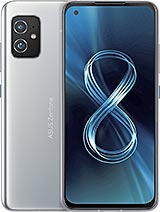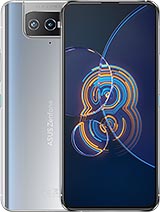Asus Zenfone 8 full review By GSMArena Official
Hey, what's up guys will here for GSM arena? This is the ASUS before 8, and it's quite different from the zen phones we've seen in recent years. It doesn't have a flip camera instead, its claim to fame is this compact form factor which is hard to find in a flagship these days. Let's check it out in our full review. Phones nowadays are pretty large compared to what you'd find on the market three or four years ago, with each generation, the screens, the batteries everything gets bigger and bigger, and that means that people that prefer a smaller phone don't have a lot of options. Asus is aiming towards this sort of crowd. With this new before 8.
, it's a compact phone that still packs a flagship punch with as few compromises as possible. The build is flagship grade with a curved back made from gorilla, glass, 3 and an aluminum frame. The matte finish helps to offer some extra grip and, as you'd expect, this phone is super easy to wield in one hand, it's compact built around a 5.9-inch screen. It's only nine millimeters thick and weighs in at 165 grams overall, the before 8 measures taller and a bit thicker than the iPhone 12 mini, but it is tinier than the galaxy s21 making it. The most compact android flagship, we've seen so far this year, and it's not only about the size since the before 8 doesn't have moving parts like the previous generations.
Asus was able to make it waterproof with a full ip68 rating on the front is quite an impressive screen. Specs wise, it's a 5.9 inch super AMOLED by Samsung, with a fast 120hz, refresh rate, a 1080p resolution and gorilla glass Vitus protection. However, you do get a small punch hole in the corner for the selfie cam, which you wouldn't get on a typical zen phone because of their flip cameras, thanks to the screen's fast refresh rate, moving elements like swiping or scrolling are quite smooth, even more so than the before 8 flip. With this lower 90hz refresh and with a 240hz touch sampling rate, this panel is extra responsive too. The adaptive refresh rate could be better optimized, though pretty much only the UI runs at 120 hertz.
If you have the dynamic mode enabled playing your media and games at 120 is only possible if you enable the high performance mode in the battery settings, the screen itself is really nice. A smaller size, combined with a 1080p resolution, means that the picture is sharp at a crisp.445 PPI you get deep, contrast, blacks, too, and HDR 10 plus support brightness is great. We measured a maximum of 440 nits with the manual slider and boost up to 800 nits in auto mode when out in the sun. Color accuracy. Here isn't the best, though, regardless of your color mode, whites do come out a bit bluish.
You can try to mitigate this through the color temperature slider for audio the before 8 has a pair of large stereo speakers. One sits at the bottom and the other one is near the top and doubles as the earpiece together they score a good mark on our loudness test, though you can boost the speaker loudness even further in sound settings by enabling outdoor mode sound quality. Here is awesome. Some of the best we've heard from a phone. The output is balanced with rich mid and highs, and even some bass, I'm also impressed that ASUS was able to fit a 3.5 millimeter jack into this small frame, especially since the before 8 flip doesn't have one there's even FM. Radio support for markets outside the EU.
The before 8 has an always-on display, which you can enable to show your time and notifications, or you can save some power and rely on the notification led which is located on the bottom. Here you also get 128 or 256 gigs of storage on board the device which isn't expandable. The interface of the before 8 is ASUS's zen UI, which is pretty close to stock android. But you do get a few proprietary features. You can keep your apps in an app drawer, which you can also access straight from the recent apps screen on zen UI you're, able to adjust the volume of your notifications and the incoming calls separately, and a feature called smart ringtone will adjust the ringing volume depending on the ambient noise and give it a boost if needed.
Another special feature is that you can map a function to the power button which will activate upon a double press or holding the button down. Waking up and unlocking the phone can be done with the under display fingerprint reader, which is responsive and easy to reach. And, finally, you get a game genie which can be opened with a swipe in game, similar to what you'd find on ASUS ROG phones. This can give you real-time performance stats as well as plenty of extensive options for your gaming at the heart of the before.8 is the best Qualcomm chip to date, the snapdragon 888 5g and as you'd expect performance here is awesome. The before 8 aces the benchmark, charts and there's more than enough power here to run the heaviest android games without a hiccup plus ASUS's proprietary OptiPlex memory management can prioritize certain apps or shut down unneeded apps using AI.
As far as the thermals go, the before 8 has a heat pipe and also uses the aluminum frame to dissipate heat and the phone will warm up under heavy stress. But with that said, thermal throttling is pretty minimal, and this is something pretty impressive for such a small phone, even though the before 8 is quite compact, it comes with a properly large 4 000 William hour battery life. Isn't spectacular, though, with the screen set to 120 hertz, the phone was able to score an endurance rating of 88 hours in our proprietary tests, which is par for the course for phones with this chipset, the before 8 supports 30 watt fast charging and the adapter comes in the box. With it, we were able to charge the phone decently fast from zero to 60 percent in half an hour. Now, let's move on to the before 8's, dual cameras: there's a 64 megapixel, quad bay or main camera with is, which can also provide two times: lossless zoom and there's a 12 megapixel ultra-wide with dual pixel autofocus.
That can also take close-ups photos from the main camera come out in 16 megapixels by default, and they are awesome. The detail level was impressive, with balance sharpness and outstanding foliage presentation. The processing here looks quite natural, with spot-on colors and the dynamic range deserves praise too. Asus offers two times: lossless zoom with the main camera by shooting in 64 megapixels, then cropping the 16 megapixel sensor and enhancing it. These look great, even though they aren't as sharp as the regular photos.
They still have plenty of detail, well-handled noise and excellent colors and dynamic range. The portrait mode uses the two-time zoom by default, and you can't opt out of it, but you don't need to. These are magnificent sharp and colorful with class leading subject separation, the 12 megapixel shots from the ultrawide shooter are great as well. There's plenty of resolve, detail and again natural looking processing with excellent foliage and skies colors are accurate, contrast and dynamic range are great, and the distortion correction is proficient too. The ultra-wide camera is supposed to focus on subjects from as close as four centimeters away and take macro shots, but in our experience it was more like six or seven centimeters.
So these are not quite macro level. The results are mixed: they're, lively and contrast, but don't come out very sharp now on to low light, shooting and hear the before 8 will by default, enable as auto night mode. These photos are great across the board, they're rich in detail and have balance, exposure and well saturated colors. The dynamic range is balanced with little to no clipped highlights, you can opt to turn off the night mode and these are still brilliant, they're, sharp with enough detail and reasonably low noise. The colors aren't as saturated as with night mode, but they're still true to life.
You will notice clipped highlights from time to time, though, if you zoom at night, it isn't lossless. These are a simple crop and upscale from the 16 megapixel shots, and you can see the reduction in quality. As a result, the ultra-wide camera takes good, auto night mode photos. They are pretty sharp and detailed for this sort of camera. With nice colors and wide dynamic range, we don't recommend shooting with the ultrawide snapper without night mode.
These are soft and colors. Look washed out. Selfies are taken with the 12 megapixel front facing cam, which has dual pixel autofocus and premiering a brand new Sony sensor. These photos are flagship, great, with well-balanced sharpness, a lot of detail, excellent colors and a wide dynamic range. The before 8 supports 4k video recording with all of its cameras, including the selfie cam, and you can record a 8k with the main cam too.
You also get electronic stabilization on all cameras across all resolutions and frame rates.8K video comes out at 24fps, and it has good sharpness and commendable colors contrast and dynamic range. The detail level was high, but there are some visible artifacts 4k clips taken with the main camera are among the best we've seen, there's an abundant level of detail, well-tuned, sharpening and overall, balanced and natural. Looking colors and dynamic range. The ultrawide camera takes 4k clips that are similar to those of the main cam they're, magnificent, nearly flawless. So that's the ASUS before 8.
You get a premium design, an excellent 120hz AMOLED screen, awesome, stereo speakers and a headphone jack, a flagship, chipset impressive camera quality, both in the day and at night, a dependable battery and pretty fast charging all wrapped up in a pint-sized waterproof package, plus on top of that, the phone is pretty affordable for a flagship undercutting its main rival is the galaxy s21 and the iPhone 12. There's hardly anything to complain about here and, if you're, after a compact phone with all the bells and whistles the ASUS before 8 definitely deserves a recommendation. Thanks for watching guys, stay safe and see you on the next one.
Source : GSMArena Official


























